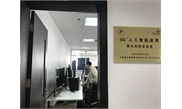 |
Lift-off: A security cordon is placed around
the launch site of an OS-X suborbital rocket, which was developed by
OneSpace Technology Group Co Ltd, in northwestern China last May. —
China Daily
|
SATELLITES have become the latest gold mine
for private companies in China as they rush to reach for the stars in
the space sector.
The country’s satellite industry, which used to be dominated by state-owned enterprises, is gradually changing and opening to private players.
More than 90 Chinese start-ups, mostly focused on satellites or rockets, have taken their first steps in the space industry in the past four years, a senior industry expert from a Beijing-based satellite startup, who wished to remain anonymous, told China Daily based on the start-up’s internal research.
“It means that on average, nearly two startups were founded every month in the past four years in China. It is significant if China is to grab a slice of the cake from the global competition in the budding space industry,” he said.
According to The Space Report 2018 issued by The Space Foundation, the total market of the global space economy was US$384bil in 2017, a year-on-year increase of 7.4%. Of that, commercial activities accounted for more than 80%.
Industry experts pointed out that China only accounts for 3%-5% of the space economy globally, but the country is gaining ground fast in terms of both scale and technology.
Since 2014, Chinese authorities have launched policies and called for private players to actively participate in the country’s space industry.
Earlier, the National Development and Reform Commission, along with the Ministry of Finance and the State Administration of Science, Technology and Industry for National Defence, also unveiled a 10-year blueprint to promote the commercial space sector.
LinkSure Network, a Chinese free internet access provider, announced a plan in November last year to launch China’s first Wi-Fi satellite in 2019.
It aims to send 272 satellites into space to provide free Wi-Fi globally by 2026. The first batch of investment will hit 3 billion yuan (US$447mil).
Similar to Elon Musk’s Starlink plan, the satellites will be used to expand internet coverage and boost internet speeds, the Shanghai-based internet firm said.
“The starting point of such a plan is to offer free internet connections to people around the world, especially those in underdeveloped areas or rough terrain,” said Wang Xiaoshu, rotating president of LinkSure Network.
The company, founded in 2013, became a unicorn – a startup valued at more than US$1bil – in 2015 by raising US$52mil in its A-round of financing.
“Satellite connection will be a great supplement to the ground network. The ground network, which relies on stations, has limitations due to, for example, weather and land form,” said An Yang, chief scientist of LinkSure’s satellite project.
“On a global scale, the number of satellites is far from meeting the huge demand for communication. The future of the communication sector must be a combination of space and ground,” he said.
Under the plan, revenue will come from services to high-end users as well as those provided to areas that the ground network is unable to reach, An said.
The space era: In this undated photo, An Yang, chief scientist of the satellite project at LinkSure Network, introduces the company’s satellite system at a news conference in Beijing. — China Daily
LinkSure is not the first. A string of startups have sent satellites into space for different purposes.
For instance, Guoxing Yuhang Co Ltd, or ADA Space, a private firm based in Chengdu, Sichuan province, launched two artificial intelligence satellites at the end of last year.
Though the country’s internet giants have not directly announced plans to develop, produce or launch satellites, they are showing a desire to do so.
Tech conglomerate Alibaba Group launched a communication satellite to support its online shopping gala last year while Baidu chief executive officer Robin Li said earlier that he hoped more support could be given to private companies in the civilian space segment.
Another tech giant Tencent Holdings Ltd has also jumped on the bandwagon by investing in US startup Moon Express, which was founded in 2013 by a group of space entrepreneurs.
The US startup is looking to profit from the commercial space sector through leveraging core technologies including using drones to mine asteroids.
Compared with state-owned companies, private firms are better at commercialisation including attracting and using money and resources, which will greatly improve efficiency, said Yang Feng, chief executive officer of Spacety, a commercial aerospace company specialising in developing commercial micro and nano satellites.
“It is also a promising area that state-owned and private space companies can supplement and co-operate with each other,” he added.
Notably, some private players have also entered the overseas market. China Communication Technology Co Ltd in Shenzhen, a satellite-based communication services provider, has been beefing up its overseas presence to exploit foreign opportunities.
“We aim to extend our business to Africa this year and will tap into one or two Belt and Road economies each year,” said Wu Guangsheng, president of CCT.
CCT is currently offering services and products in the US, Europe, the Middle East and nine other countries and regions that are participating in the Belt and Road Initiative.
In 2017, its overseas revenue was about 9 billion yuan, which made up more than 60% of the total.
It also plans to further explore South-East Asian markets including Indonesia, Malaysia and the Philippines, and promote its products in Central Asian economies such as Kazakhstan.
Last year, the company entered the Philippines by acquiring G Telecoms Inc, the third-biggest telecom operator in the local market.
“In the past, we could only co-operate with local (telecom) carriers in foreign countries by selling our equipment to them. But with this big step, we can operate independently, be it launching our own satellites or providing data-related services,” Wu said.
The business could have huge potential as some 75% of the Philippines’ 100 million population are aged 25 or under and they have a voracious demand for communication services.
So far, CCT has received orders from civil aviation and public security departments in the Philippines, Indonesia and Malaysia.
In 2018, at least 15 private space companies disclosed their financing with the total amount estimated to reach more than 2 billion yuan, according to a report from 36Kr, a science and technology media group.
A report from China Money Network pointed out that seven private space companies had raised more than 1.66 billion yuan by August 2018.
MatrixPartners China, IDG Capital, China Growth Capital and Shunwei Capital were among the major investors.
Despite intensive capital support, industry insiders pointed out that there is still a long way to go for Chinese private firms to gain a lead.
For startups, money is still the bottleneck, said Jiang Yunwei, president of CITIC Juxin (Beijing) Co Ltd Capital Management, in a report.
“A company cannot earn money by launching a single satellite and the commercialisation of satellites needs a network of dozens of satellites, which costs a lot,” he said.
A satellite network requires at least 1.8 billion yuan to 2 billion yuan, according to Xie Tao, founder and chief executive officer of Beijing-based space startup Commsat Technology Development Co.
Facing such pressure, satellite startups are expected to address another challenge – to reduce the cost of developing and launching up satellites.
“Companies should change their approach of using costly accessories made only for space,” said Xie. “Private companies can leverage commercial components to replace expensive ones.
”
Zhang Jiacheng, an investor in space startup OneSpace, agreed.
“China is still at the starting point in the commercial space sector. A well-rounded system needs to be established to offer space startups affordable and sustainable services.” — China Daily/Asia News Network
Related posts:

Chinese quantum satellite to protect China from cyber attacks
https://youtu.be/iymqNogNxEg













